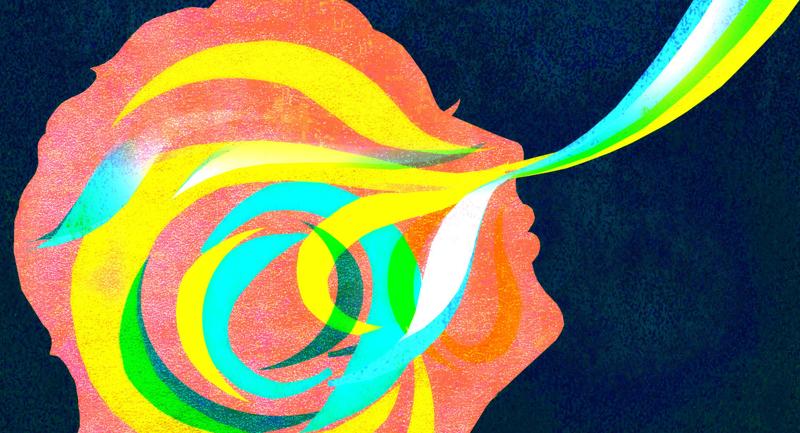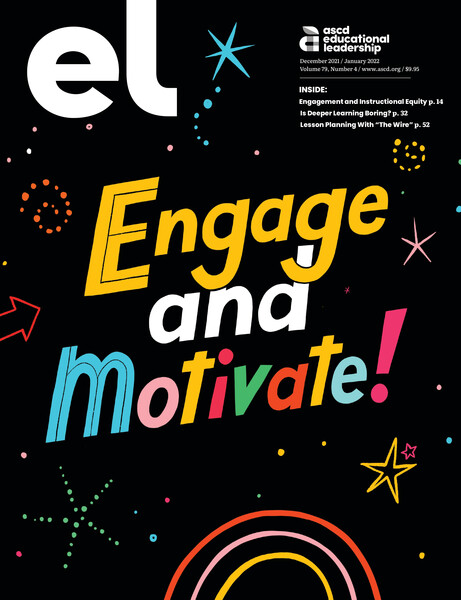Focusing on increasing student engagement, as many articles in this magazine make clear, is a worthy goal for instructional coaches. The research is quite clear: Schools that meet the needs of all students are places where students feel safe, have friends, know they belong, have many positive experiences, and—perhaps most important—have hope. Such emotional engagement is a prerequisite for student learning.
What, then, is the best way for coaches to partner with teachers to increase student engagement? Do coaches need to be experts to have the biggest impact?
Many educators and coaching experts say no. When coaches position themselves as experts giving advice, they often overestimate the value of their advice, and turn off the people they coach by trying to solve their problems for them. Many coaches and teachers will likely nod their head in agreement with author Michael Bungay Stanier's haiku: "Tell less, ask more. Your advice is not as good as you think it is" (Stanier, 2016, p. 59). The true job of a coach is not to solve people's problems, but, as Sir John Whitmore (a leader in education coaching) has famously said, to unlock "people's potential to maximize their own performance" (Whitmore, 2017, pp. 12–13).
Effective Coaches Know a Lot About Engagement
And yet, coaches have access to an ever-growing body of research describing how to increase student engagement. For example, instructional coaches can help teachers define engagement by distinguishing between (a) behavioral engagement (students look like they are on task), (b) cognitive engagement (students are getting out of their activity what the teacher intended for them to), and (c) emotional engagement (students feel they are connected and that they belong in school; they have friends, positive experiences, and hope) (Knight, 2019).
Also, instructional coaches can help teachers gather data on engagement in their classes. They can do so by assessing behavioral engagement (through measures such as students' time on task, how many kids are being disruptive, and academic responses), cognitive engagement (through exit tickets and experience sampling, which involves students giving feedback on their engagement during a lesson), and emotional engagement (through interviews, checks for understanding, and monitoring students' interactive journals).
Many coaches and teachers will likely nod their head in agreement with author Michael Bungay Stanier's haiku: 'Tell less, ask more. Your advice is not as good as you think it is.'
Finally, instructional coaches can partner with teachers to increase student engagement by sharing high-impact teaching strategies. For example, teachers who want to increase behavioral engagement can learn how to write, teach, and reinforce expectations for all activities and transitions. Teachers who want to increase cognitive engagement can be guided to use strategies that encourage student voice and make learning more relevant, or to try strategies that increase the impact of frequent formative assessment and feedback. Teachers who want to increase emotional engagement can look at—and work to improve—how they create a learner-friendly classroom culture, or how they use power in the classroom, or how they build emotional connections with students. And these are just a few ideas coaches might share on how to increase student engagement.
Use Your Expertise—But Honor
So, should effective coaches ignore this body of helpful research and knowledge? I think most of us could agree that not drawing on this knowledge would be counterproductive. Yet I understand why some may dislike the "expert" label; the word expert conjures up images of an experienced, powerful professional tutoring an amateur novice, hardly a good analogy for professional-to-professional interactions.
What's more, telling teachers what to do—and expecting them to do it—is not an evidence-based model for change. In fact, a strictly directive model can do more harm than good, by increasing teacher dependence, decreasing teacher morale, and de-professionalizing teaching.
I believe instructional coaches can and should have expertise—they just shouldn't act like experts. This may sound paradoxical, and maybe it is. But it's a very real approach to coaching. Indeed, anyone who is coaching or mentoring a fellow educator needs a more sophisticated understanding of how to share knowledge between professionals if they want to provide ideas and strategies in a way that that's embraced and implemented.
Effective instructional coaches honor the professionalism of teachers by ensuring that teachers make the decisions about what happens in their classrooms. This, as I stress in my work with schools, starts with teachers setting goals designed to have an unmistakably positive impact on students' learning or well-being.
Effective coaches know they need to refrain from fixing people and focus on creating conditions where people unlock their own potential.
Counterintuitive Communication
This kind of partnership coaching also involves an almost counterintuitive way of communicating. Most of us get a great deal of pleasure out of telling others how to solve their problems. But effective coaches know they need to refrain from fixing people and focus on creating conditions where people unlock their own potential. This means that coaches should only share their expertise when it is clearly needed. If a teacher knows what strategy she or he wants to use to move toward an established goal, that strategy should be the starting point for change.
However, if a teacher isn't sure what to do, then a coach can say something like, "Do you mind if I share some ideas I've got about strategies you might use?" Then, after sharing the strategy, the coach needs to communicate in a tentative way that ensures that the teacher only chooses a strategy they genuinely want to implement ("This is just one idea you might try here"). I've found in my coaching experience that teachers won't adopt a strategy as their own unless they choose it.
When explaining a teaching strategy, the coach should describe it clearly while also encouraging the teacher to think openly about how they might want to modify the strategy for use with their students. In this way, coach and teacher move away from an overly optimistic, one-size-fits-all notion and toward an interaction that is just as dialogical as goal setting.
Expertise matters. Those of us who guide teachers do need to ensure that teachers have access to the expertise coaches or others have (such as about student engagement). But we also need a new kind of discourse about expertise, a professional discourse in which all educators (teachers, coaches, administrators, and others) honor each other's professional discretion. When teachers are seen as professionals, they act in professional ways, which means they make many decisions about their practice. Our students deserve to be taught by professionals. Encouraging teachers to view themselves that way begins with the way we talk.
Instructional Coaching Guide
Read Jim Knight's definitive guide to coaching.








